News
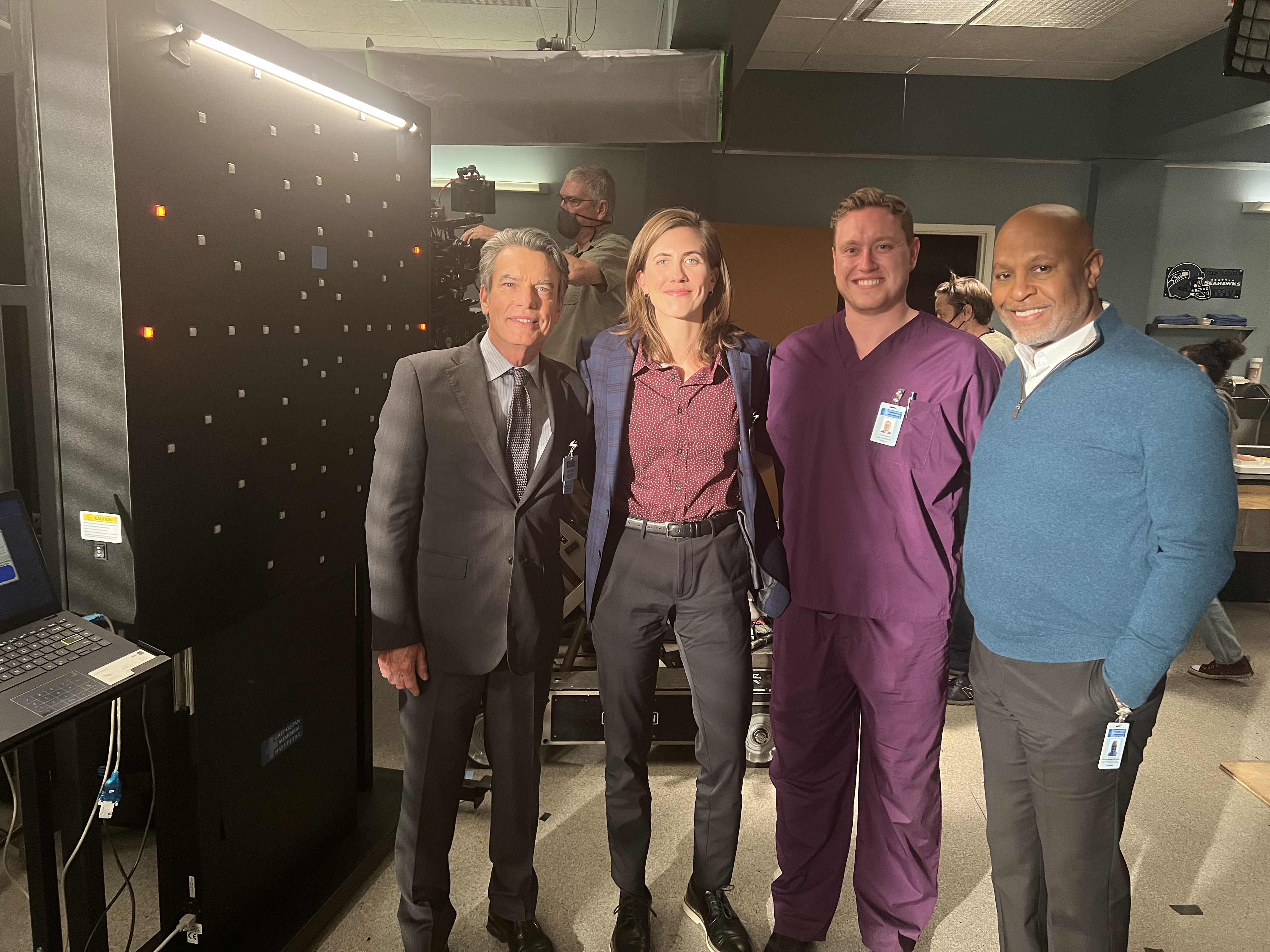
Jon Vincent is not a doctor yet, but he has played one on TV.
Vincent, an MD/PhD student at the UK College of Medicine, had early experience wearing scrubs in a clinical setting when he served as an extra for a recent episode of the hit medical drama, “Grey’s Anatomy.”
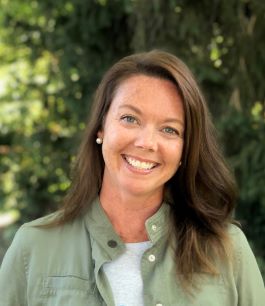
The University of Kentucky College of Medicine has established a new leadership position that will help continue to advance its growing research enterprise.
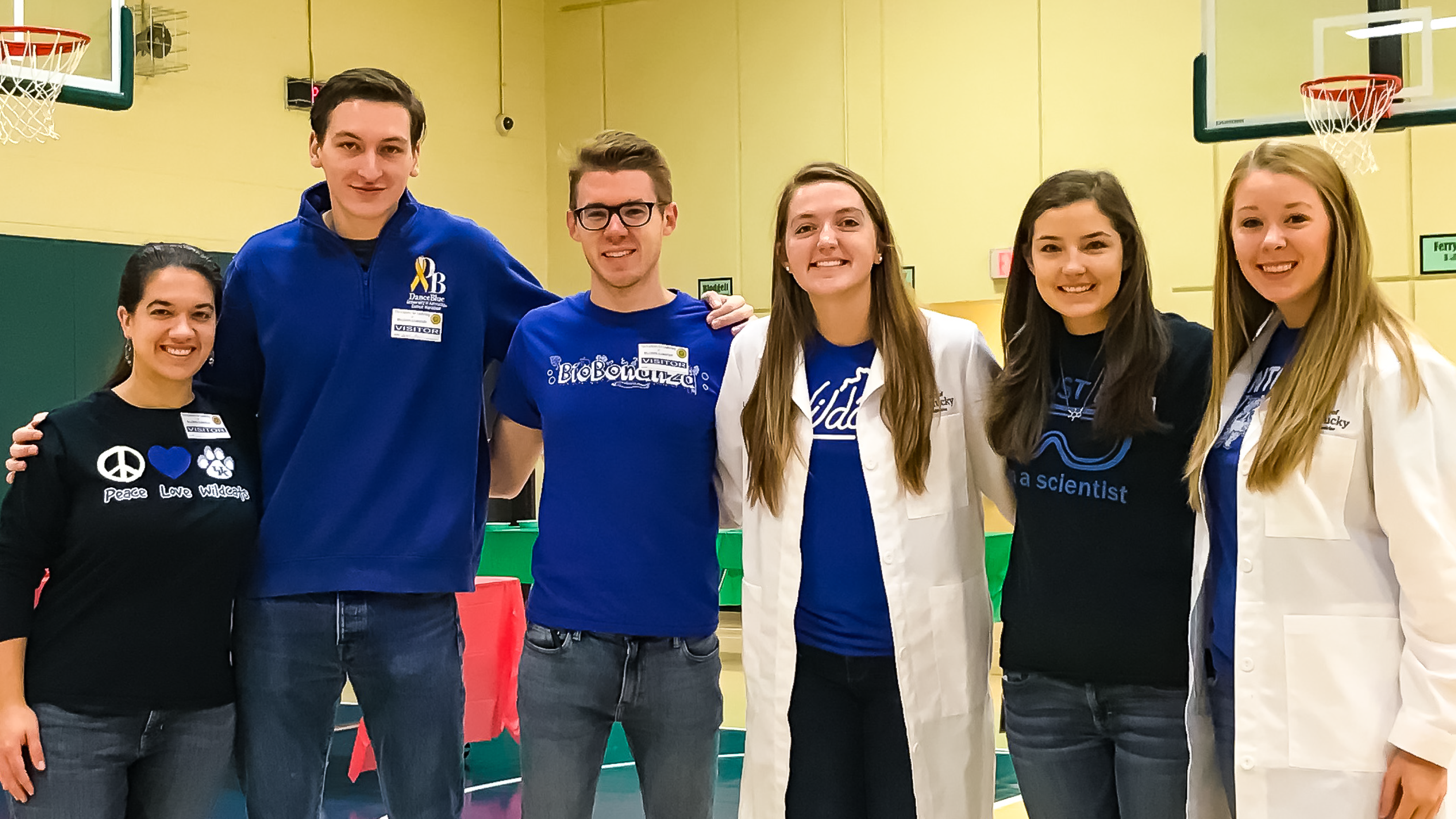
For students in research, the journey toward earning a graduate or postgraduate degree can be rewarding once they begin laboratory work, but at times, also very isolating.
“Once you join your lab, you go to your specific department, and even within departments, we hardly see each other because we are just doing the individual work that our lab focuses on every day, day in and day out,” said Meagan Kingren, a doctoral student in pharmacology and nutritional sciences.
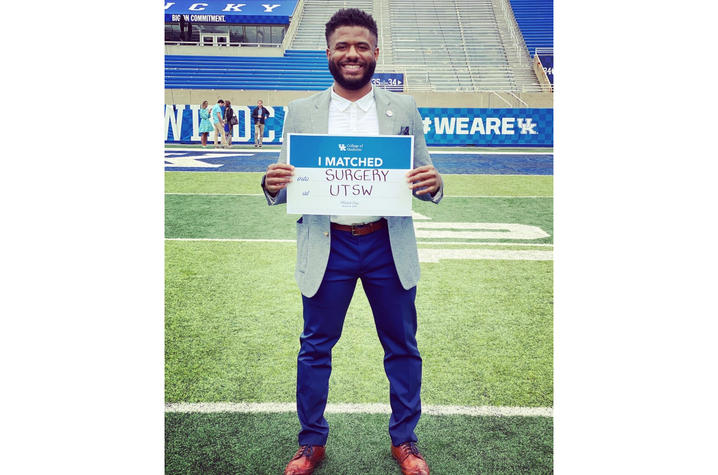
LEXINGTON, Ky. (May 13, 2022) — While completing his undergraduate degree at the University of Kentucky, Jonathan Davies found himself at a crossroads. He had stretched himself too thin with involvement in organizations and programs, and he started suffering burnout. He then missed the window to take his medical school entrance exam junior year.
At first, he felt lost and far behind his peers. But he learned later that this wasn’t a misstep. It was a redirection.
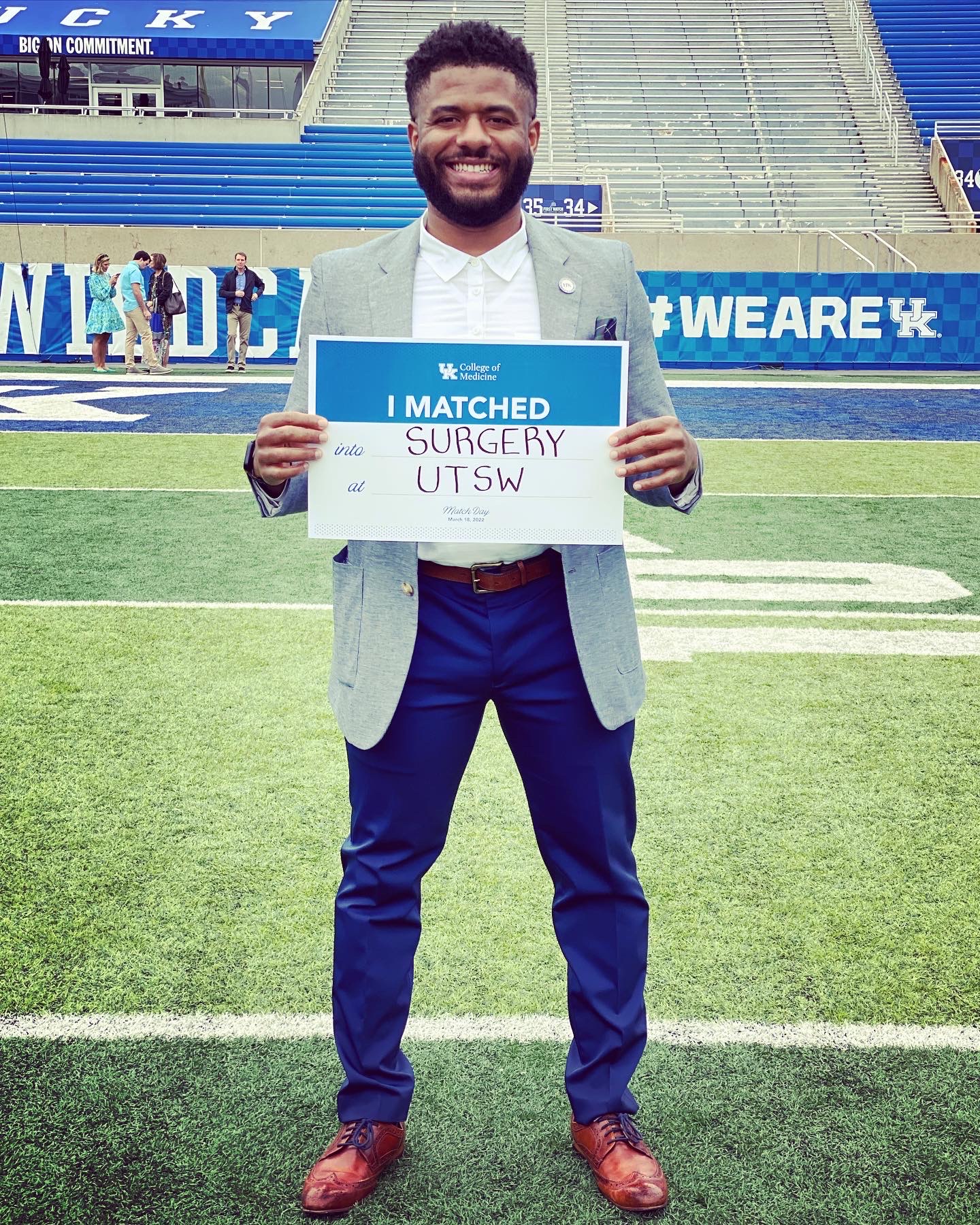
While completing his undergraduate degree at the University of Kentucky, Jonathan Davies, MS, found himself at a crossroads. He had stretched himself too thin with involvement in organizations and programs, and he started suffering burnout. He then missed the window to take his medical school entrance exam junior year.
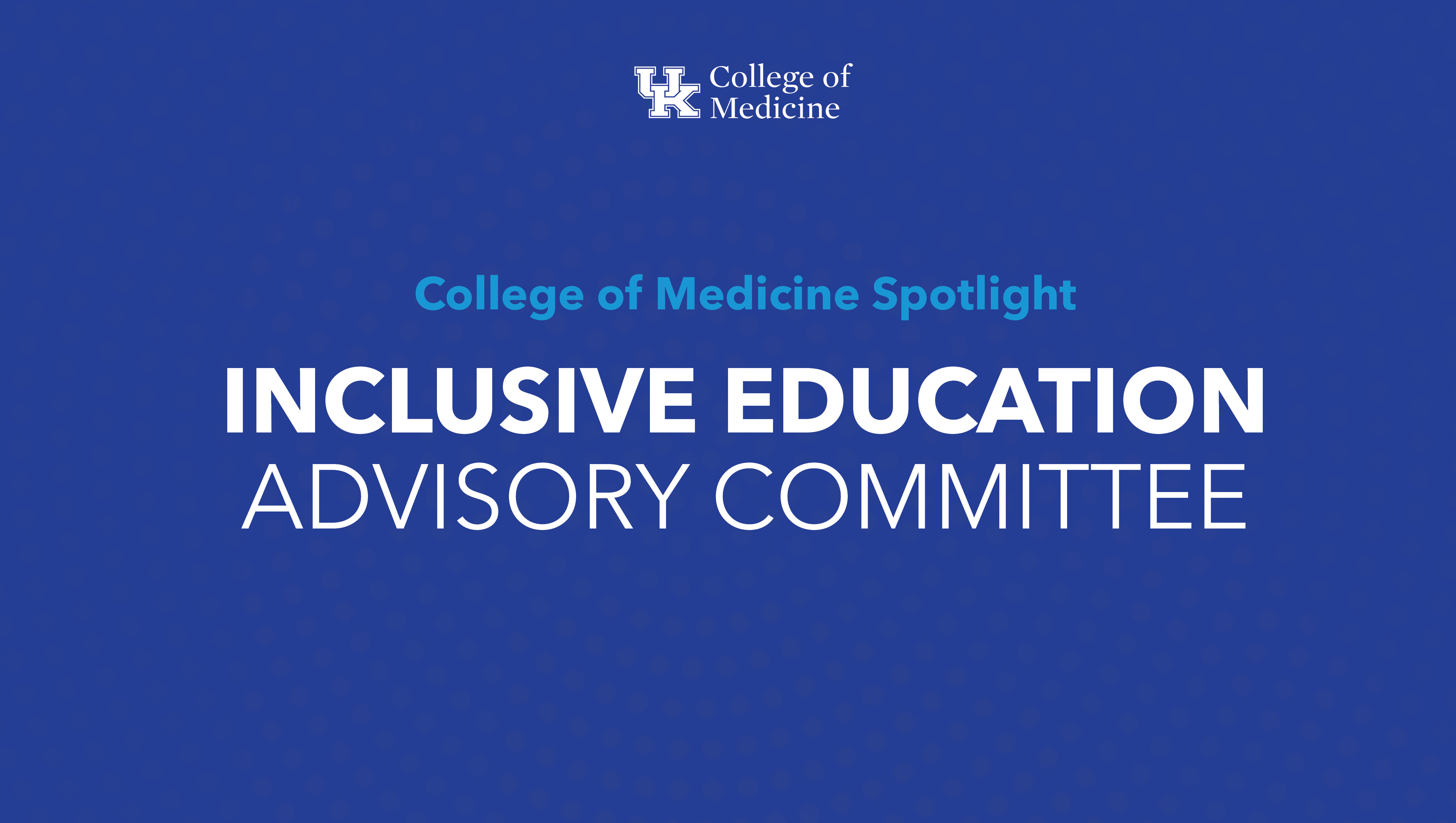
In 2020, high-profile murders of Black civilians by police garnered national attention, shining a light on the growing need for social change. Learners at the UK College of Medicine collaborated to compose a letter to their leadership, advocating for solutions to combat systemic racism. The College of Medicine administration engaged with learners to implement strategies and initiatives that would address their concerns.
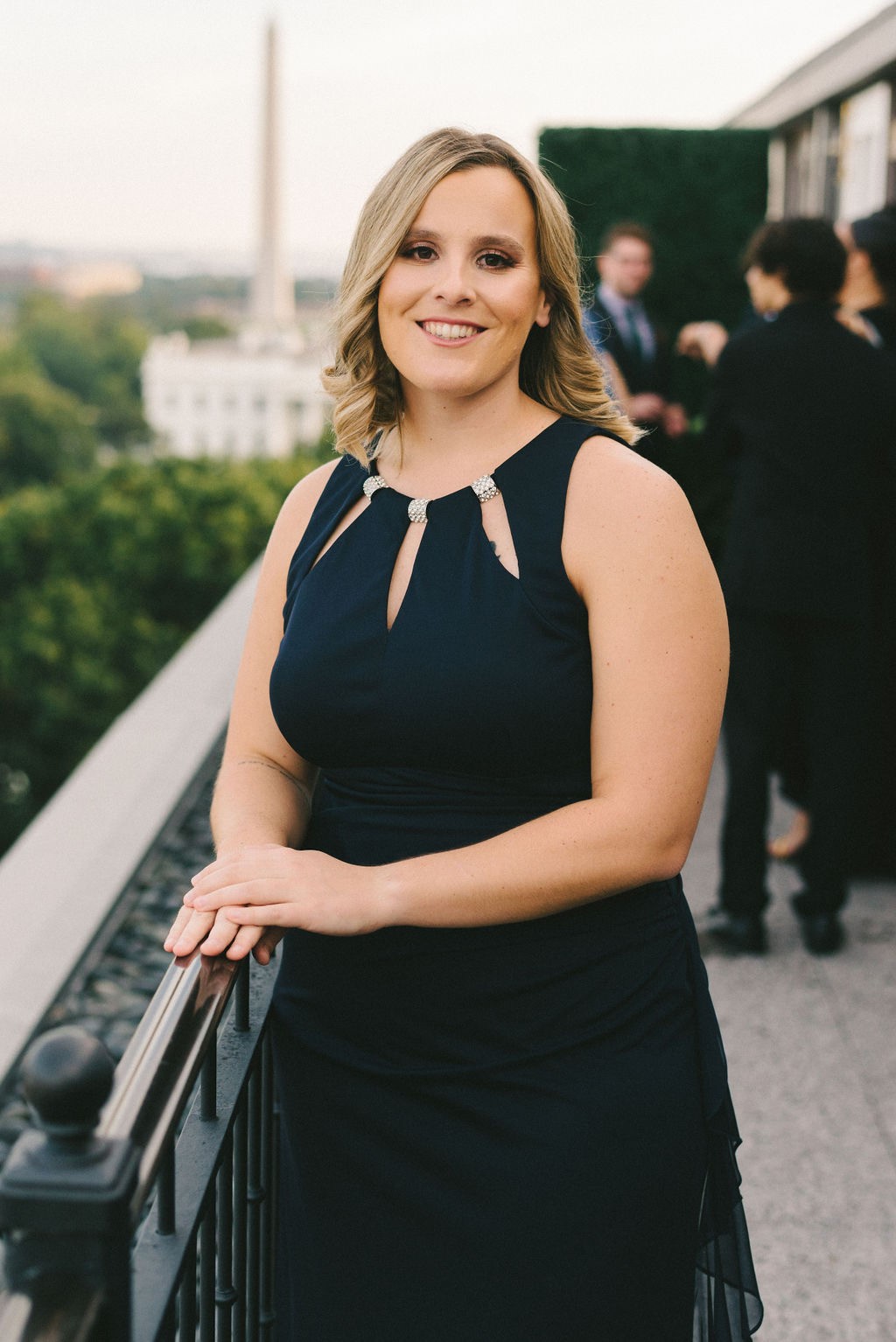
Early in her undergraduate years of college, Elena Shelepak had several career paths in mind. She was good at biology and curious about genetics. During freshman year, she took a few psychology courses. Criminal justice also piqued her interest.
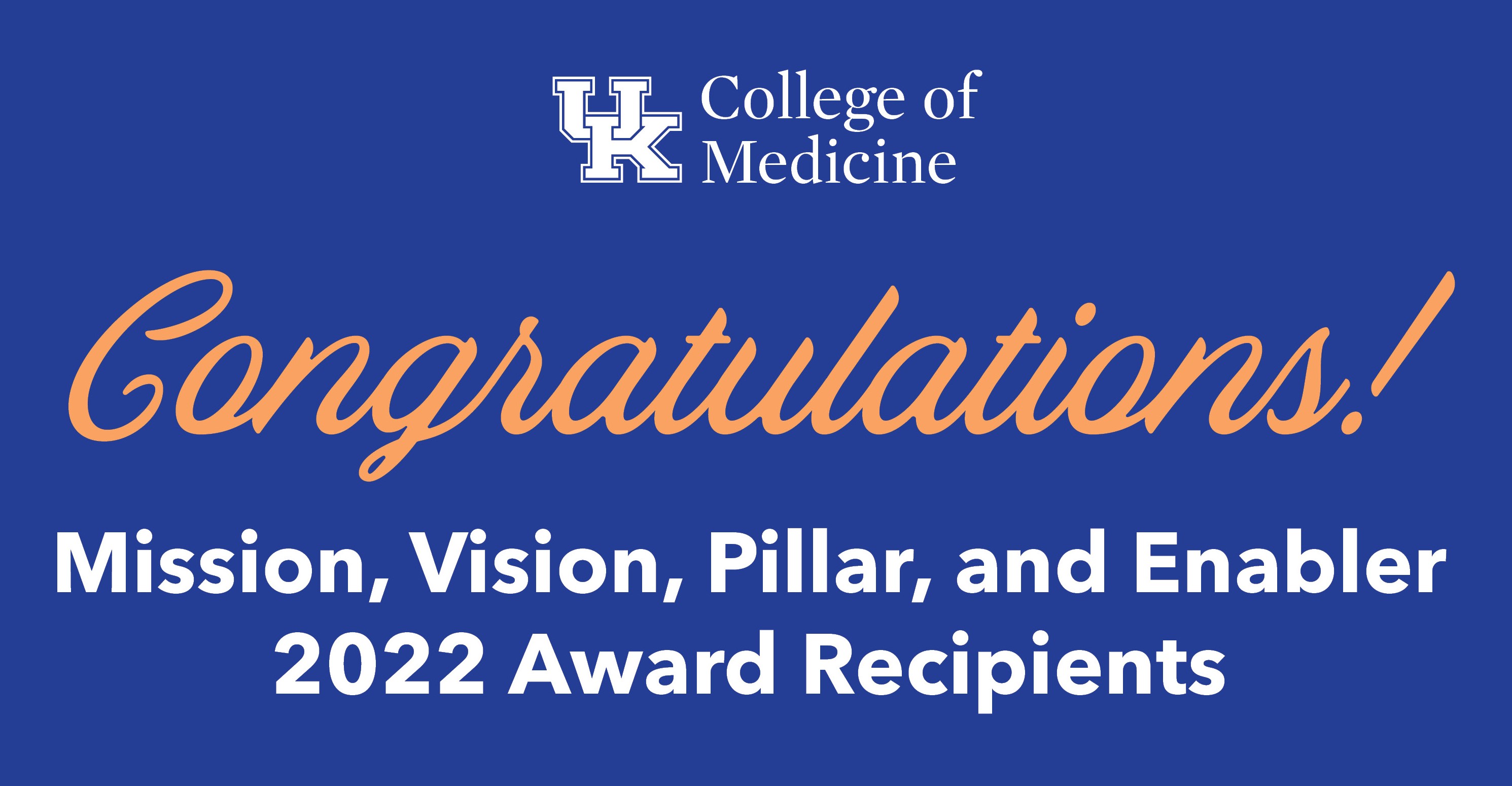
The University of Kentucky College of Medicine is pleased to announce the faculty, staff, and learner winners of the inaugural Mission, Vision, Pillar, and Enabler Awards.

Graduates say the online certificate program is “1,000-percent worth doing.”
Cathryn Benson, APRN, has worked 13 years in health care, most recently in hospital medicine and anesthesia. She wanted to learn how she could further help her patients with nutrition, but as a mom who worked 14-hour days, she never thought additional schooling would be an option.
Then she heard about an online program offering flexible scheduling and a well-rounded nutrition-related curriculum – that was also, conveniently, run on the University of Kentucky’s campus.
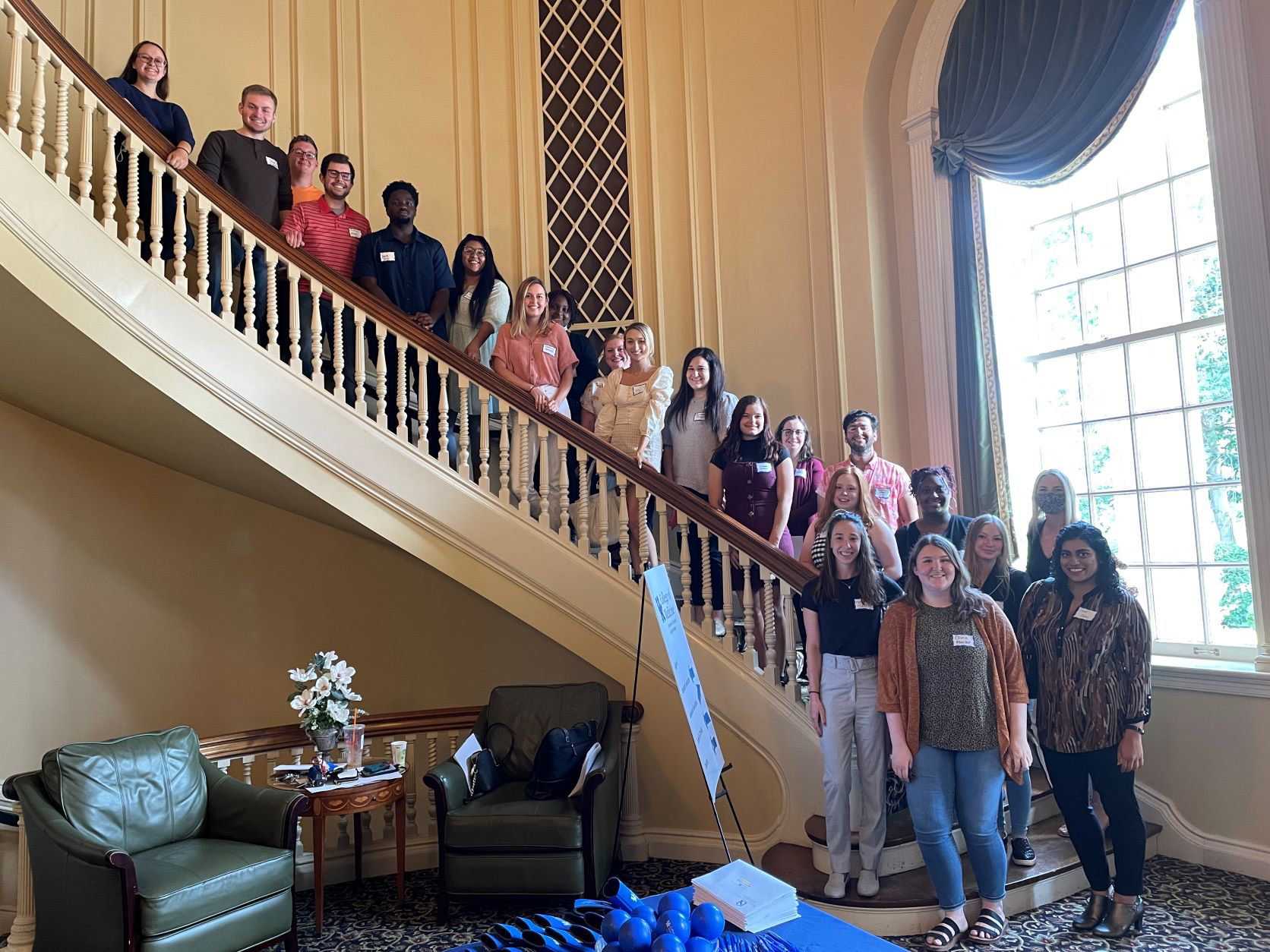
Housed in the UK College of Medicine Department of Toxicology and Cancer Biology is a new professional master’s degree program that is the only one of its kind in the state of Kentucky, and the fifth of its kind in the country.
And due to its unique educational experience and strong curriculum, this new program is seeing a jump in its number of students.
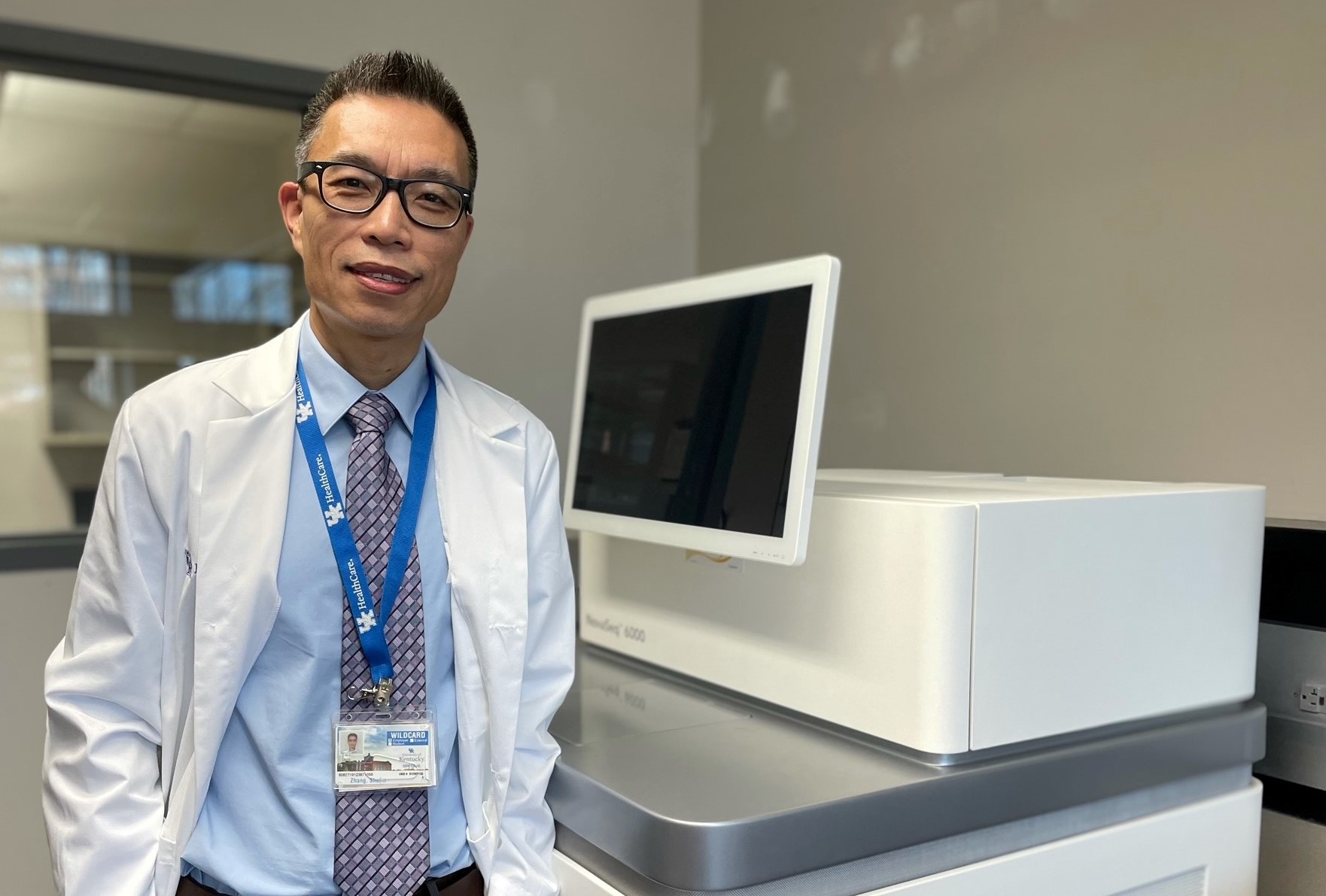
Shulin Zhang, MD, PhD, professor of pathology and laboratory medicine, began his career as a clinical molecular geneticist when the famous Human Genome Project was in its final stages. A 23-year international research effort, the project was revolutionary as it determined the full DNA sequence of the human genome.
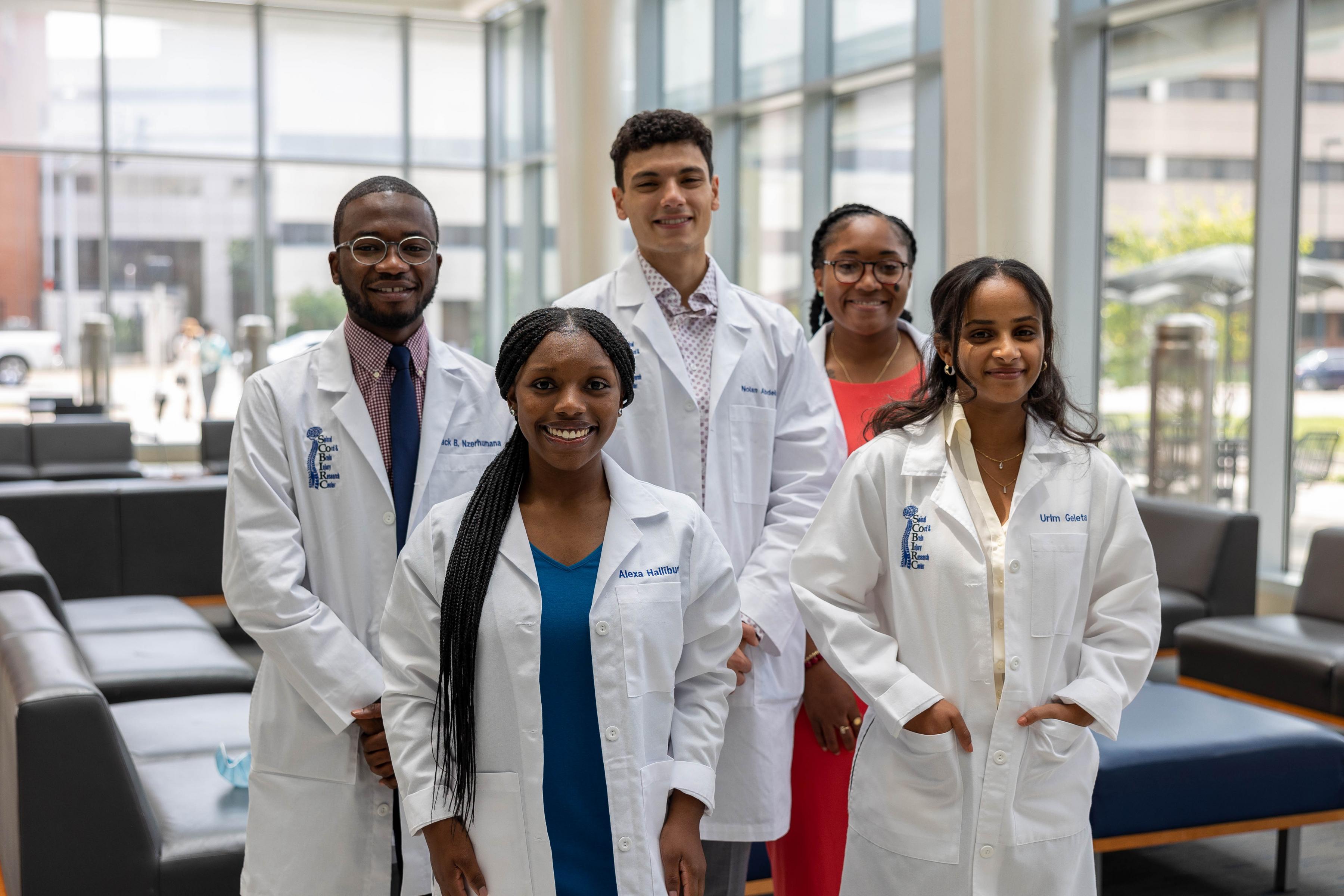
Jordon Burdette, a senior neuroscience and psychology major, was minutes away from presenting to a crowd of University of Kentucky scientists when the nerves set in. Her presentation, focused on cellular regeneration and spinal cord injury, was a culmination of a year of research she had worked on with her mentor, Warren Alilain, PhD, associate professor of neuroscience.
Burdette pushed through those nerves, and Dr. Alilain said she “crushed” it. She left feeling proud of her accomplishment and thankful for the opportunity to study a topic she didn’t expect to ever pursue.
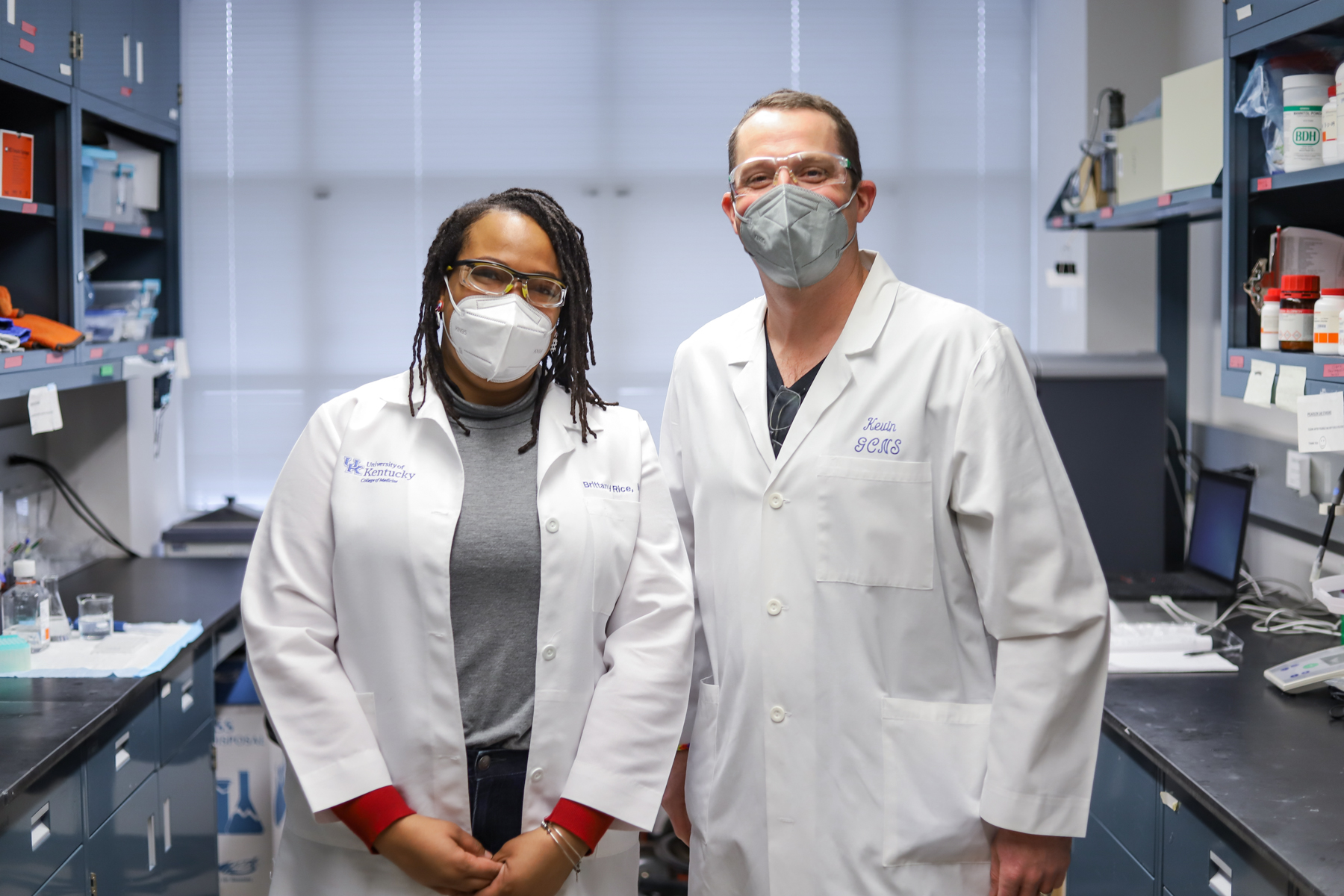
Urim Geleta is only into her senior year of her undergraduate degree, yet she has already played a key role in neuroscience research at UK.
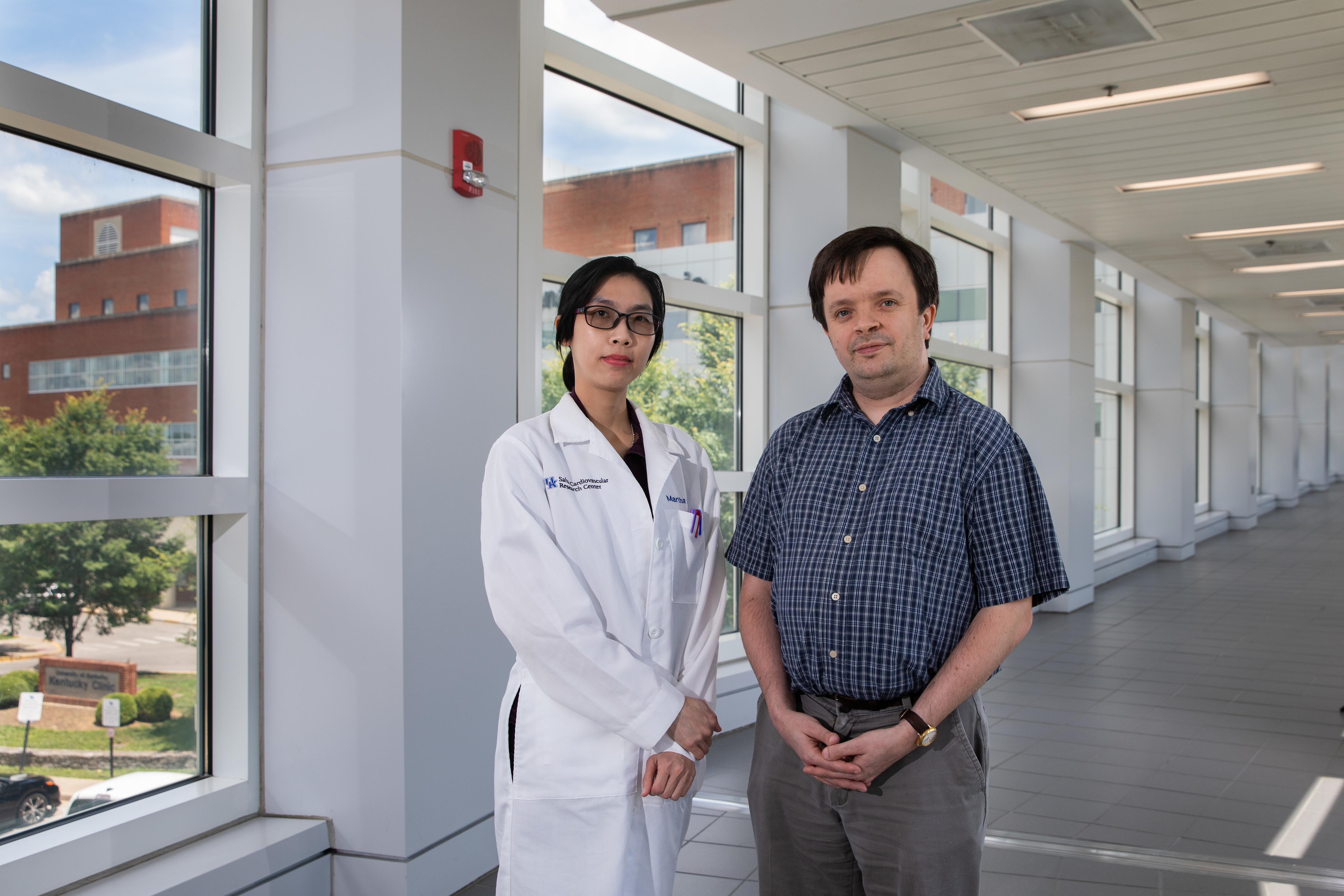
Martha Sim, MD, a graduate student at the College of Medicine, knew it was possible she would witness a pandemic in her lifetime, but she did not expect it to happen so early in her research career. Yet in 2020, COVID-19 spread rapidly across the globe.
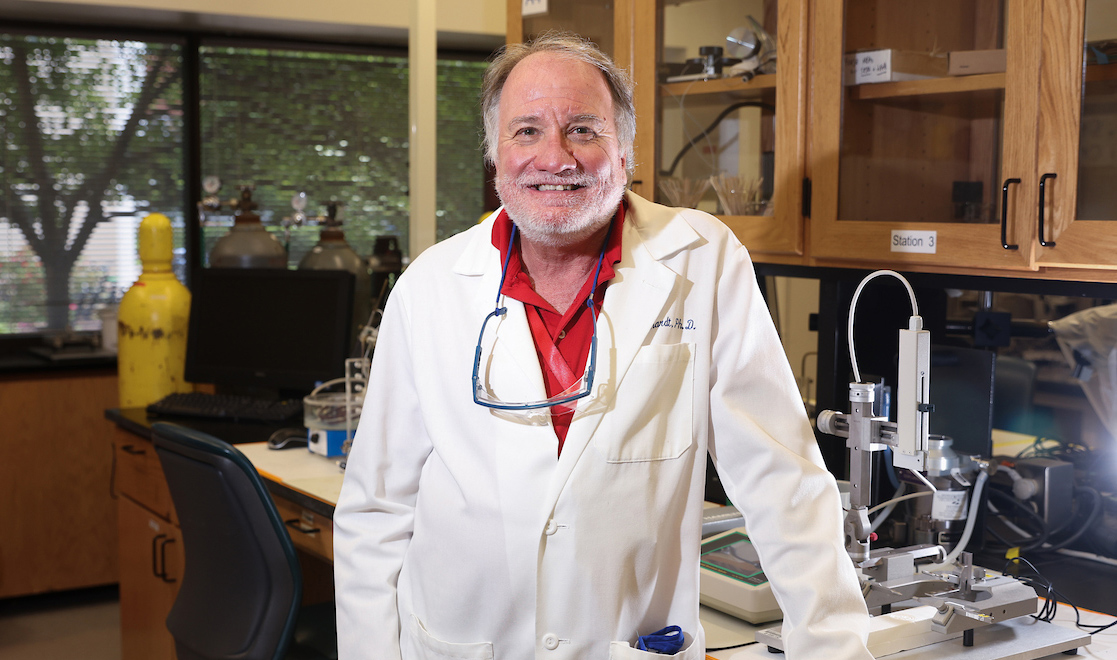
Greg Gerhardt, PhD, is a professor of neuroscience and researcher with the Spinal Cord and Brain Injury Research Center (SCoBIRC) and Brain Restoration Center, as well as advisor for the MD/PhD program. He currently serves as co-principal investigator for the Brain Restoration Alliance in Neurodegeneration (BRAIN). In the following Q&A, Dr. Gerhardt shares more about his current projects.
Q: Why did you want to pursue a career in neuroscience research?
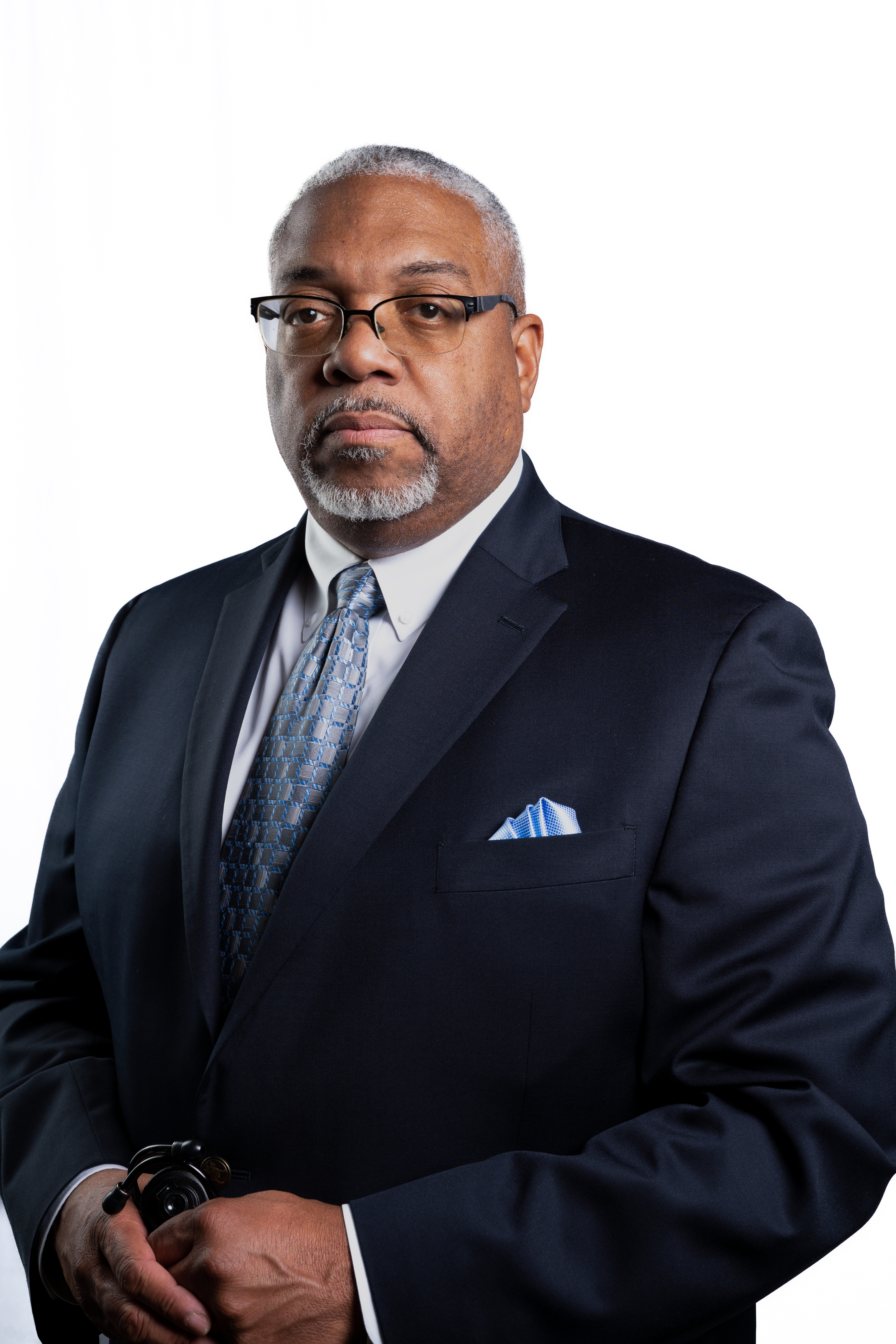
The College of Medicine is excited to announce the appointment of the next chair of the department of internal medicine after a comprehensive national search. Darwin L. Conwell, MD, MS, FACG, has accepted the position and will officially join our faculty on April 4, 2022.
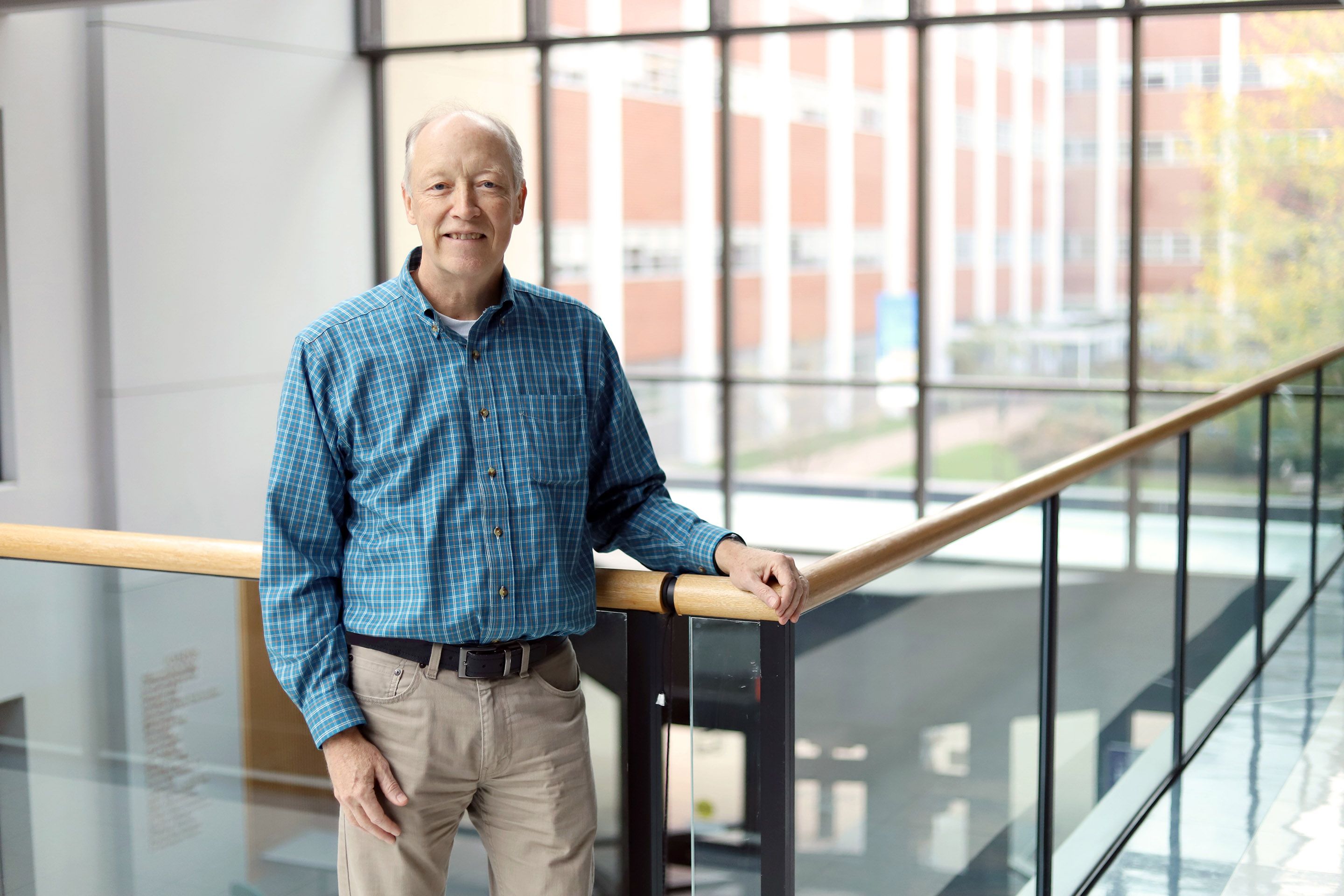
Grant writing is a competitive process. Without the proper resources, staff, or expertise, faculty may struggle in gathering key funding that could benefit future research projects, and ultimately, promote innovative health discoveries.

By the time she became a faculty member at the UK College of Medicine, Susanne Arnold, MD, was arguably more prepared than anyone to treat Kentuckians and educate future physicians.
She was introduced to the medical field early and was surrounded by it. She recalls taking a preserved human brain to show and tell when she was in grade school (which she jokes wouldn’t happen now, though her classmates thought it was pretty cool). In high school, she shadowed physicians in a clinic, and she gained clinical experience observing autopsies before she even started medical school.
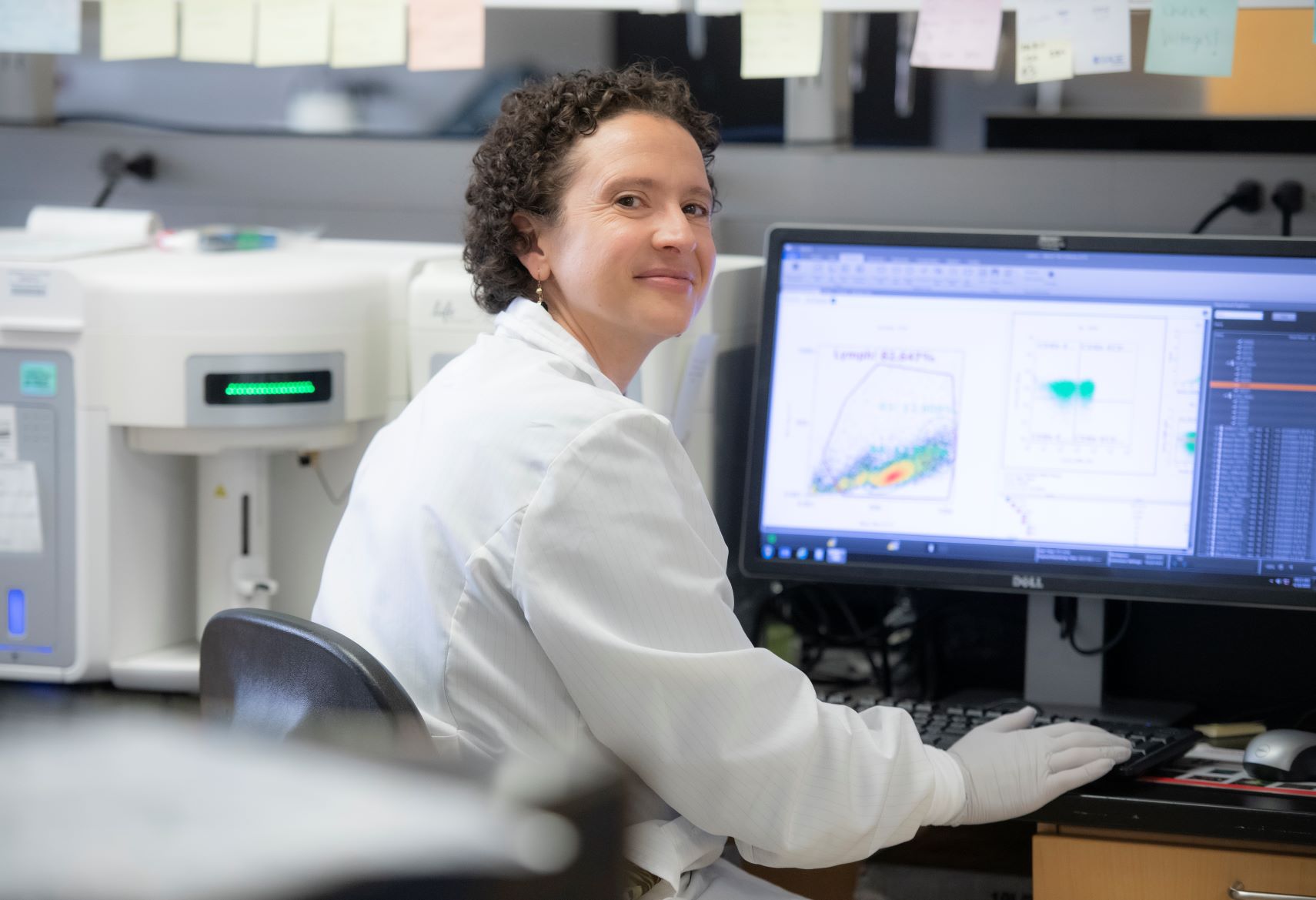
The University of Kentucky College of Medicine recently welcomed Ilhem Messaoudi, PhD, as the new chair of microbiology, immunology, and molecular genetics. She shares more about her work to better understand viruses and the wide range of factors affecting the immune system. She also shares how her research career led her to UK.
Q: Why did you pursue a career in research?
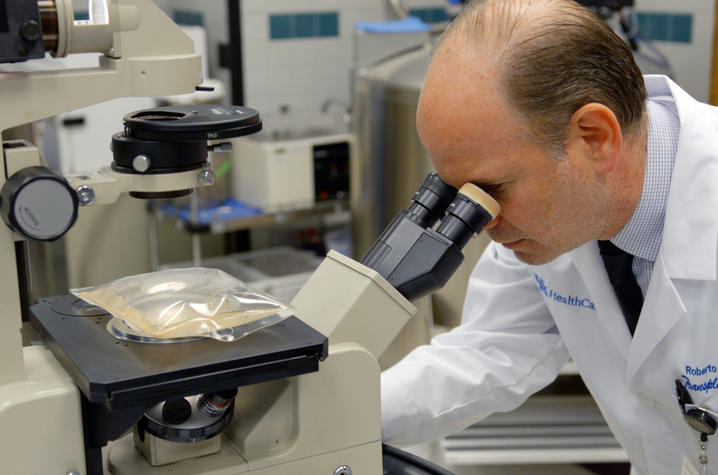
Roberto Gedaly, MD, and Francesc Marti, PhD, investigators in the University of Kentucky College of Medicine Department of Surgery, have noticed a year-over-year increase in liver transplants at UK HealthCare.
“Not only has our volume gone up significantly,” Dr. Gedaly said, “we’re actually going to break a record of liver transplant patients this year.”